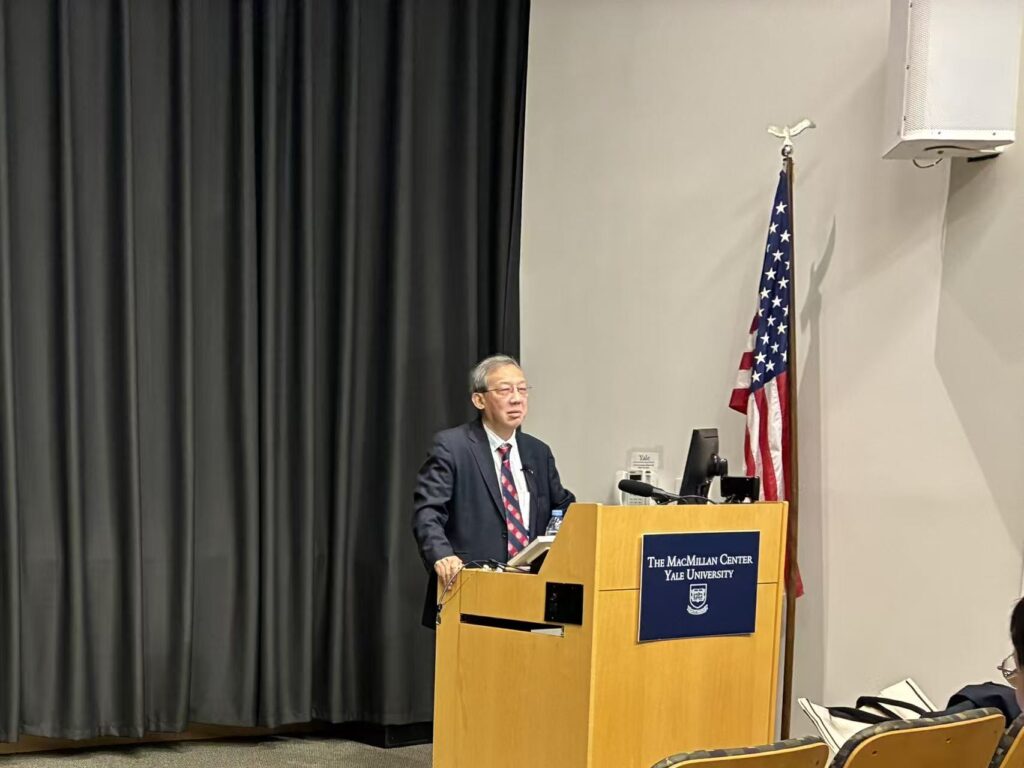On March 14, 2024, the Council on East Asian Studies at Yale University’s MacMillan Center for International and Area Studies hosted a significant lecture titled “Zhou Enlai and China’s ‘Age of Revolutions.’” Delivered by Chen Jian, a history professor at New York University and NYU-Shanghai, the lecture focused on the complex legacy of Zhou Enlai, the first Premier and Foreign Minister of the People’s Republic of China.
Zhou Enlai is recognized as a pivotal figure in the Chinese Communist Party and played a crucial role in shaping the nation’s early policies, including during the Cultural Revolution and the normalization of relations with the United States in the 1970s. Chen’s academic biography of Zhou was published by Harvard University Press in 2024.
Kathy Rupp, the director of the Council on East Asian Studies, emphasized the importance of the annual Hume Lectures, named after Edward H. Hume, a Yale alumnus from 1897. “The Hume lectureship aims to bring prominent scholars in the field of East Asian studies to Yale,” Rupp stated. She noted that recent lectures have focused exclusively on China, hoping to enhance the understanding of this significant region among Yale students and the wider community.
The event began with Arne Westad, a history professor at Yale, who introduced Chen and praised his expansive scholarship on modern Chinese and international history. “There are very few people who had the kind of impact that he has had on the writing of Chinese history and international history in his generation,” Westad remarked.
Chen opened his lecture by examining the term “revolutions” in the plural, highlighting that 20th-century China underwent multiple transformative periods, from the 1911 revolution to the Cultural Revolution. “The subject of my talk today, Zhou Enlai, was involved in almost every phase of this age,” Chen explained.
The focus of Chen’s lecture was Zhou’s relationship with Mao Zedong, the founder of the People’s Republic of China. Departing from traditional portrayals that depict Zhou as an “accomplice” to Mao, Chen presented a more nuanced view of Zhou’s political stance. “Certainly he was not a Maoist, certainly not an internalized Maoist,” Chen asserted.
Drawing from extensive archival research, Chen detailed Zhou’s role in the revolutions of 20th-century China. He argued that Zhou was instrumental in crafting the Chinese Communist Party’s “grand strategy” that ultimately led to their victory over the Nationalist Party in the Civil War. Chen suggested that Zhou “hoped” to preserve democracy after the CCP took power, striving to exert a moderating influence within the party, though his efforts were consistently undermined by Mao’s absolute control.
“He tried very, very hard to serve as a good premier,” Chen noted, acknowledging that this made Zhou an “enabler” of Mao’s policies.
Chen also discussed Zhou’s significant influence on China’s foreign policy. He recounted a two-hour conversation he had with Henry Kissinger at Yale, who had met Zhou during his historic visits to China. Chen recalled that during a confidential meeting in 1973, Kissinger offered China assistance in the event of a Soviet missile attack, to which Zhou neither confirmed nor denied.
To conclude, Chen shared a personal anecdote regarding the complexities of Zhou’s legacy. “When I was writing the Zhou Enlai biography, people often asked me, including my 90-year-old father when he was still alive, ‘Chen Jian, tell me, is Zhou a good guy or a bad guy? Yes or no?’” Chen reflected. “No, I cannot answer this question.”
Attendees highlighted the value of the lecture in enhancing their understanding of Chinese history. Jamin Nuland, a Yale student, described Chen as “a great storyteller,” noting the lecture provided a more nuanced perspective on Zhou Enlai’s role within the Communist Party. Aiken Wang, another student, appreciated the opportunity to delve into a topic often underrepresented in Yale’s curriculum.
The MacMillan Center, located at 34 Hillhouse Avenue, continues to foster discussions on important historical and contemporary issues related to East Asia.
